Gain insights into the intriguing question: Is Ramadan mentioned in the Bible, and discover the shared roots of fasting in religious traditions.

Is Ramadan in the Bible
You've probably never stumbled upon a hashtag about Ramadan in the Bible while scrolling through your social media feeds, but the question of its presence in Christian scriptures sparks curiosity.
As you navigate through historical contexts and religious teachings, you'll find that fasting, a core component of Ramadan, is a shared spiritual practice across many faiths, including Christianity.
The Bible references fasting in various contexts, but does it specifically mention Ramadan, a pillar of Islam? This exploration might not only broaden your understanding of religious practices but also highlight the intricate tapestry of interfaith commonalities.
Let's uncover whether these connections invite a deeper appreciation of shared spiritual values.
Key Takeaways
- Ramadan is not directly mentioned or referenced in the Bible.
- Fasting as an act of devotion and self-discipline is present in both Islamic and Christian practices.
- Specific practices like sawm in Ramadan are unique to Islam and not found in Biblical teachings.
- Interfaith dialogue highlights the shared value of fasting for spiritual growth across religions.
Understanding Ramadan
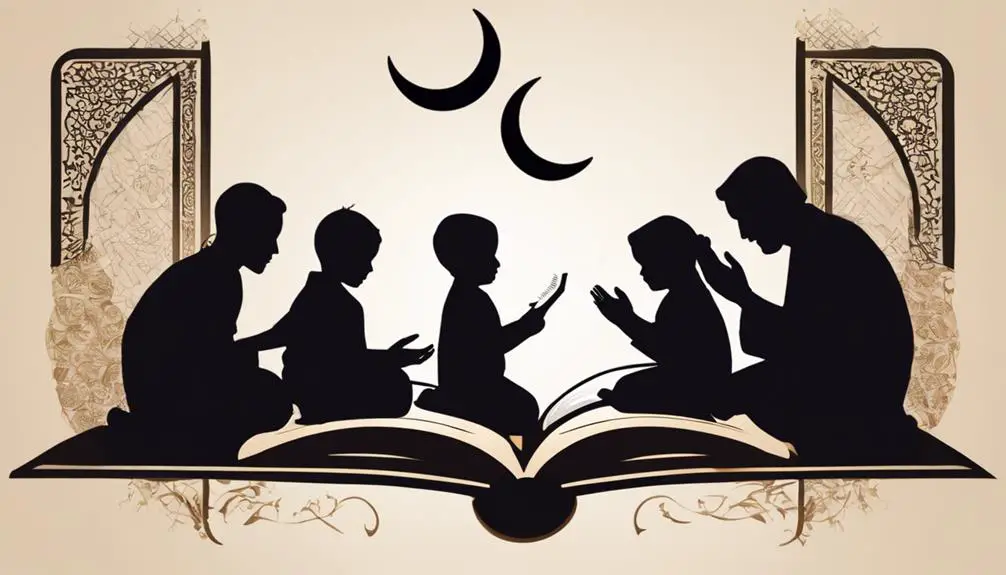
Ramadan, the ninth month of the Islamic lunar calendar, is a period of fasting, reflection, and community for Muslims worldwide. During this Islamic month, you're expected to abstain from food, drink, and other physical needs from dawn until sunset. This practice isn't just a physical test but a spiritual exercise meant to cleanse the soul and instill empathy for the less fortunate.
Analyzing the fasting benefits, it's clear that this practice goes beyond mere hunger. It's a time for you to re-evaluate your relationship with God, intensify your worship, and foster a sense of community. The act of fasting serves as a reminder of the transient nature of human desires and the importance of gratitude and humility.
Moreover, this period encourages you to reflect on your actions and purify your intentions, aligning them more closely with divine will. The discipline required to fast instills patience, self-control, and resilience—qualities that extend beyond the month itself.
In essence, Ramadan offers you a comprehensive platform for spiritual rejuvenation and moral realignment, underpinning the core values of empathy, gratitude, and community in the Islamic faith.
Historical Context of Fasting

Throughout history, fasting has served as a profound spiritual practice across various cultures and religions, reflecting a universal pursuit of purification and self-discipline. Ancient practices of fasting weren't solely for spiritual enlightenment but often intertwined with health implications, suggesting an early understanding of its benefits beyond the spiritual realm.
You'll find that ancient civilizations, from the Greeks to the Egyptians, engaged in fasting as a means to cleanse the body and spirit. These practices were deeply rooted in the belief that abstaining from food and drink could lead to a greater connection with the divine, enhance mental clarity, and promote physical well-being. The health implications of fasting, recognized even in those times, include improved metabolic functions and the body's natural detoxification process, pointing to an intuitive grasp of its physiological benefits.
Moreover, fasting's role in various religious traditions highlights its significance in human culture. It's a testament to its enduring relevance, not just as a ritualistic observance but as a holistic approach to health and spirituality. By examining these ancient practices, you gain insight into the multifaceted nature of fasting, encompassing both its spiritual significance and health implications.
Biblical References Explored
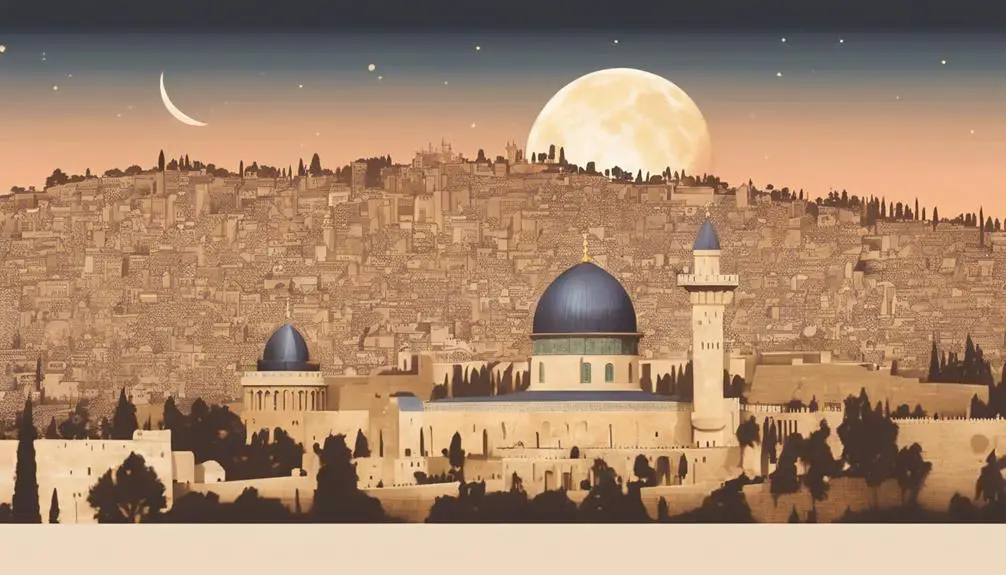
Exploring the Bible reveals several instances where fasting is mentioned as an act of devotion and self-discipline. While the practice of fasting is prevalent, a direct reference to Ramadan, as observed in Islam, exhibits a scriptural absence in the Bible. This doesn't diminish the significance of fasting within both religious contexts but highlights the unique origins and practices associated with Ramadan.
To understand the biblical perspective on fasting and its comparison to Ramadan, consider these points:
- Prophetic Parallels: The Bible recounts several prophets and devout individuals engaging in fasting as a means of spiritual purification and communication with God. This mirrors the essence of Ramadan but lacks a direct correlation in terms of methods and duration.
- Scriptural Absence: No passage in the Bible explicitly mentions Ramadan by name or outlines its specific practices, such as the sawm (fasting from dawn until sunset) observed by Muslims during the month of Ramadan.
- Acts of Devotion: Both religious texts emphasize fasting as a significant act of faith and devotion towards God, encouraging believers to seek closeness and personal growth through self-discipline and sacrifice.
Analyzing these points sheds light on the distinctions and similarities in the observance of fasting across these faith traditions while acknowledging the absence of direct references to Ramadan in the Bible.
Common Grounds in Faith
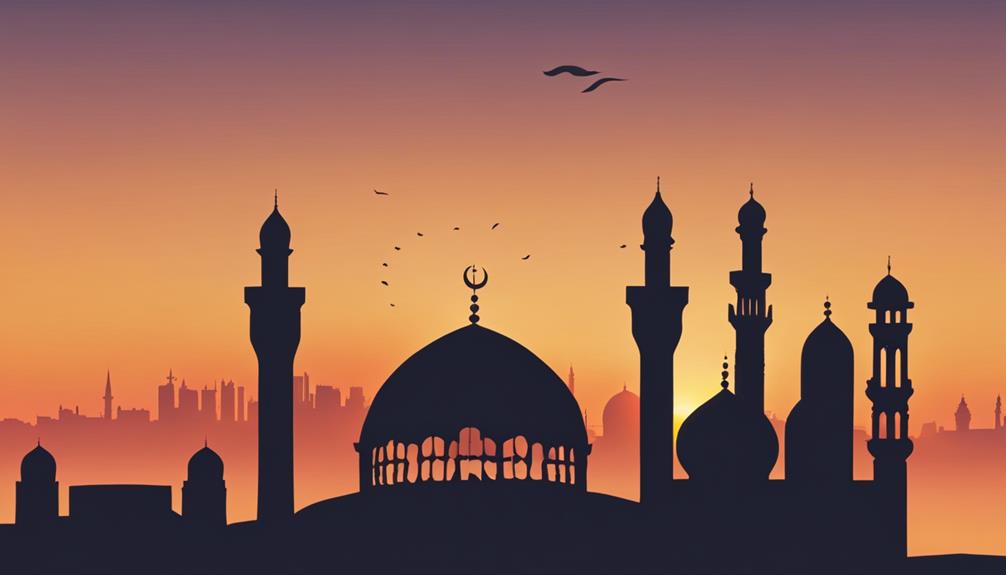
Despite differences in practices and beliefs, Christians and Muslims find common ground in their dedication to fasting as a profound act of faith. This shared emphasis on fasting showcases a remarkable instance of spiritual unity that transcends the boundaries of individual religions. It's a testament to the power of religious tolerance and the ability of diverse faith traditions to converge on shared values and practices.
Fasting, in both Christianity and Islam, is seen not just as an act of deprivation but as a deeply spiritual practice aimed at purifying the soul and fostering a closer relationship with the divine. This mutual recognition of fasting's significance highlights the common spiritual objectives that underlie different religious observances. It serves as a reminder that, at their core, major religions often advocate for similar virtues: self-discipline, reflection, and a commitment to spiritual growth.
Acknowledging these shared practices doesn't just foster religious tolerance; it also paves the way for a deeper understanding and respect among followers of different faiths. By focusing on what unites rather than what divides, believers can promote a more inclusive and harmonious world. This commonality, rooted in the tradition of fasting, illustrates the potential for spiritual unity amidst diversity.
Interfaith Dialogue Importance
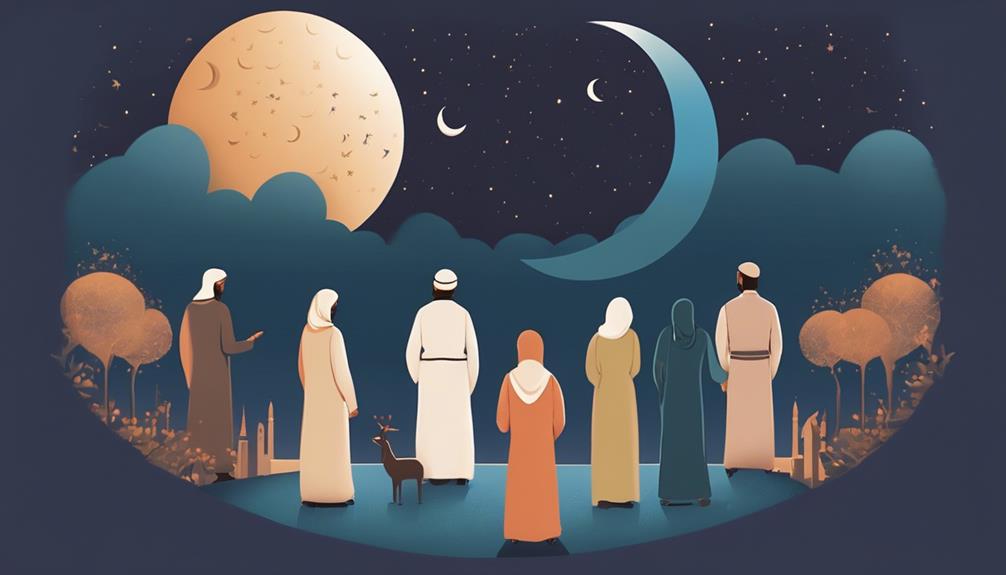
Interfaith dialogue often plays a crucial role in bridging the gaps between diverse religious communities, fostering a deeper understanding and mutual respect. When you engage in conversations about faith with someone from a different religious background, you're not just sharing beliefs; you're actively participating in the creation of a more tolerant world. This process is essential for promoting religious tolerance and enhancing cultural awareness.
Here are three key reasons why interfaith dialogue is crucial:
- Promotes Religious Tolerance: By understanding the beliefs and practices of other religions, you're more likely to respect and tolerate differences. This reduces stereotypes and prejudices, creating a more harmonious society.
- Enhances Cultural Awareness: Interfaith dialogue isn't just about religion; it's also about understanding the cultural contexts in which these religions are practiced. This fosters a deeper appreciation for the diversity of human experience.
- Builds Stronger Communities: When people of different faiths come together in dialogue, they often find common ground on social issues, leading to joint efforts in community development and social justice initiatives.
Frequently Asked Questions
How Do Different Islamic Sects View and Observe Ramadan, and Are There Any Significant Variations in Practice?
You might find that Islamic sects vary in their Ramadan practices, specifically in sectarian Iftars and fasting interpretations. Sunni and Shia Muslims, for instance, observe Ramadan with core similarities but differ in details like prayer times and breaking the fast.
Sufi communities may incorporate additional spiritual practices. While the essence of fasting unites them, these variations highlight the diversity within Islam.
It's crucial to approach these differences with an analytical, objective lens.
What Are Some Personal Testimonies of Individuals Who Converted to Islam and Experienced Their First Ramadan?
When exploring personal testimonies of individuals who've converted to Islam, you'll find their first Ramadan experiences rich with conversion emotions and fasting insights.
Many describe it as a profound period of spiritual awakening and community connection. You'll notice a recurring theme of challenge turned into spiritual fulfillment.
These stories offer a unique perspective, highlighting the transformative power of observing Ramadan, deepening one's faith, and understanding the essence of fasting in Islam.
How Has the Observance of Ramadan Evolved With Modern Technology and Social Media Platforms?
With modern technology and social media platforms, you've seen Ramadan observance evolve significantly. Digital Iftars have become a way for you to connect with others globally, breaking your fast together online.
Fasting apps help you track your fasts, reminding you of prayer times and providing motivational quotes. This evolution allows you to maintain the spirit of Ramadan while integrating these practices into your fast-paced, digital lifestyle.
Can You Detail Any Specific Health Considerations or Exemptions That Are Commonly Overlooked During Ramadan Fasting?
When you're fasting during Ramadan, it's crucial to remember specific health considerations. Often overlooked, dietary supplements can play a vital role in maintaining your health. You've got to plan your intake wisely to avoid deficiencies.
Equally important are hydration strategies; drinking enough water outside fasting hours is essential to prevent dehydration. These aspects sometimes don't get the attention they deserve, yet they're key to a healthy fasting experience.
Are There Notable Instances Where Political or Cultural Events Have Significantly Impacted the Observance of Ramadan in Certain Regions or Communities?
Yes, there have been instances where political or cultural events significantly impacted Ramadan. For example, Ramadan diplomacy often sees shifts during conflicts, affecting how and when fasting regulations are observed.
In some regions, political turmoil or natural disasters have led to calls for flexibility in fasting rules to accommodate those affected. These events underscore the adaptability of Ramadan observance to maintain its spiritual significance despite external challenges.
Conclusion
In conclusion, while Ramadan isn't explicitly mentioned in the Bible, the practice of fasting holds significant common ground across both Islam and Christianity. Your exploration of historical contexts and biblical references highlights the interconnectedness of these faith traditions.
It's clear that understanding and respecting the importance of Ramadan can foster meaningful interfaith dialogue. By recognizing these shared spiritual practices, you're encouraged to appreciate the depth and richness of diverse religious experiences.


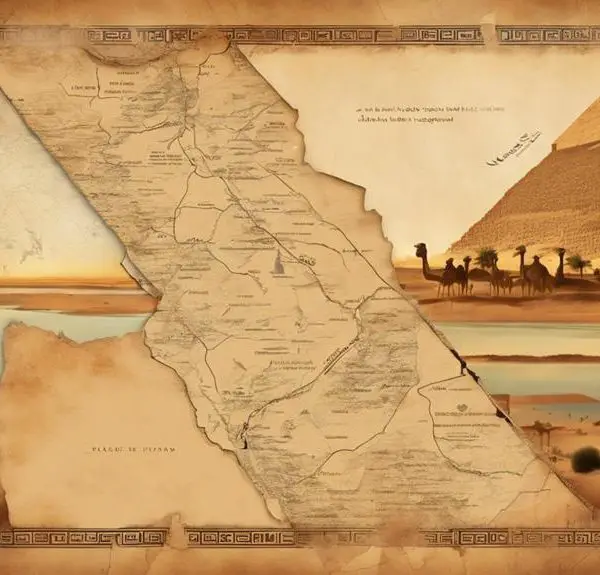
Sign up